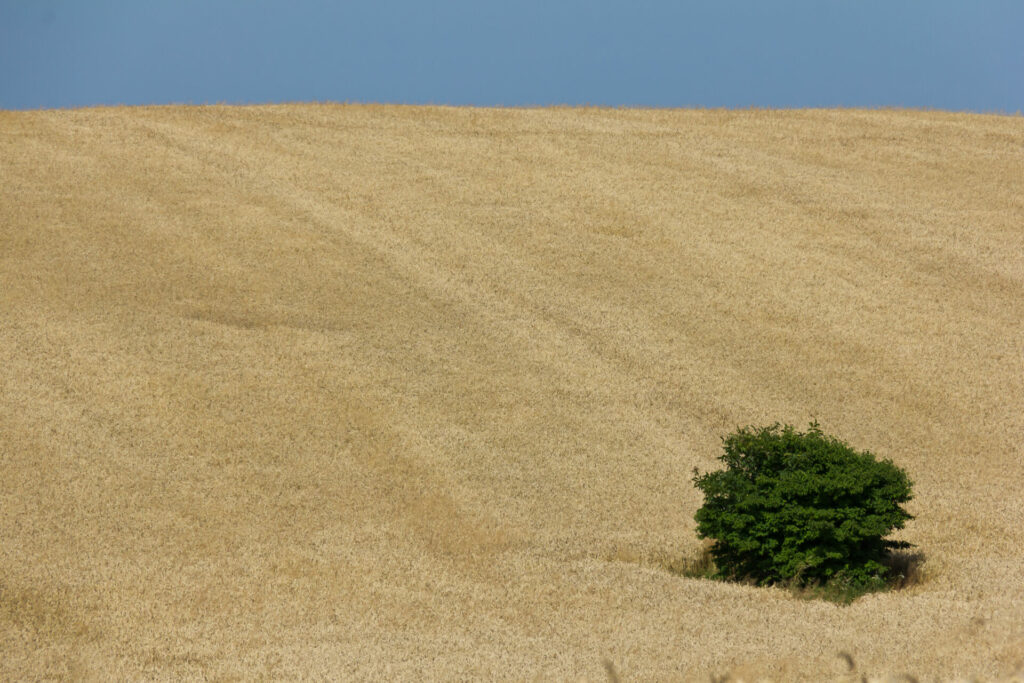BRUSSELS BEHIND THE SCENES
Weekly analysis with Sam Morgan
Ukrainian grain imports were banned by a couple of Kyiv’s staunchest allies this week, highlighting the fragility of the EU’s single market and, perhaps, a gradual shift of power towards the bloc’s eastern frontier.
From the windswept polders of the North Sea coast to the fragrant lavender fields of Bulgaria, farmers wield substantial clout when it comes to political decisions like funding and trade policies.
That agrarian hold over European governments was on full display this week when four countries decided to stop importing Ukrainian grain, defying a bloc-wide effort to show solidarity with its invaded neighbour.
This particular episode told us a lot about the nature of human principles, as well as the ever-evolving power dynamics of the European Union.
BRUSSELS BEHIND THE SCENES includes weekly analysis not found anywhere else, as Sam Morgan helps you make sense of what is happening in Brussels. If you want to receive Brussels Behind the Scenes straight to your inbox every week, subscribe to the newsletter here.
When the news broke that Poland, Hungary, Slovakia and Bulgaria would ban Ukrainian grain imports, it must have been music to the ears of Russian President Vladimir Putin and his horde of pro-Kremlin stooges and trolls.
Indeed, at first glance it suggested that European support for the invaded country is waning and that money will inevitably trump common decency. That analysis is not totally wide of the mark but the situation is far more complex than it seems.
Firstly, let us identify the true villain of this piece: logistics. When the EU dropped import tariffs in a bid to support Ukraine’s defence effort and keep food staples moving towards countries that rely on them, it was done with the best of intentions.
Cast your minds back to last year, when the most pessimistic of pundits warned of food shortages, even famine, if Ukrainian grains were taken off the menu. It even prompted Türkiye to step in and broker the Black Sea Grain Initiative.
As of March 2023, more than 20 million tonnes had made its way out of Ukraine thanks to that maritime trade pact. Shipping grains by truck was still a top form of transport as well, made easier by EU efforts and its ‘solidarity lanes’.
But a lot of those imports flooded the markets of Ukraine’s immediate neighbours. Transport costs to ship grains to shores further afield add up and in some cases it is simply easier to source wheat and barley from other parts of the world.
A Spanish plan to charter freight trains to bring more Ukrainian grains into Western Europe fell foul of that brand of bean counting. Inland waterway costs are also hard for finance ministries to justify.
This unilateral action by Poland and its allies was a long time coming. The EU was always going to be a victim of its own success and the still somewhat dysfunctional nature of the single market.
Despite earning a rebuke from the European Commission for shutting down grain imports, the offending countries do look to have won some concessions from Brussels.
Compensation payments for affected farmers will be on the table and the Commission will organise a fleet of vehicles to transport grains across borders. How this will be funded is still not clear.
Prepare now for the inevitable holes in this new plan. The Commission wants to use more capacity on the Danube to transport goods but trade grinds to a halt during droughts and hot weather. A sweaty summer will cause chaos.
Farmers in other countries will also likely see Poland’s ban and insistence that only sealed trucks and trains can cross its territory as a policy to replicate. 'Why should Bulgarian farmers get compensation and not me?', a Czech farmer may well ask.
Poland’s government will also be emboldened to go further somehow, as an election later this year looms and the ruling regime’s scandalmongers try to paint Brussels as the bad guy in order to win more votes.
A power in the east?
Central and Eastern European EU members have won many plaudits since Russia’s invasion began.
Their hawkish policies have proven to be popular and their track record of urging caution vis-a-vis Moscow have led some analysts to suggest that the balance of power in the EU is shifting.
If Poland, Estonia et al were right about Russia before maybe they should be listened to more in the future. France and Germany, the traditional powerhouses, have hardly covered themselves in glory over the last 18 months after all.
This week’s grain episode perhaps shows that there is some merit to that logic.
But other evidence may count against it. Poland continues to struggle to access its EU recovery money and it has come up short on big climate issues like the internal combustion engine and emissions trading.
Some aspiring CEE powerhouses are also guilty by association with Hungary, which continues to chart a course that is decidedly anti-EU and increasingly NATO-agnostic. Bulgaria too is far too Moscow-friendly.
Here we perhaps see a parallel with the far-right in the European Parliament and their perennial threat to put together a 'super-group' and capture the institution. It never happens because the far-right is nowhere near homogenous enough to pull it off. Interests vary too much for them to team up.
Perhaps then we can conclude that Europe’s eastern nations are building up their clout reserves but are still not savvy enough when it comes to knowing how to cash them in.
BRUSSELS BEHIND THE SCENES includes weekly analysis not found anywhere else, as Sam Morgan helps you make sense of what is happening in Brussels. If you want to receive Brussels Behind the Scenes straight to your inbox every week, subscribe to the newsletter here.

